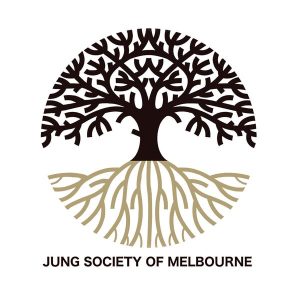“Probably in absolute reality there is no such thing as body and mind, but body and mind or soul are the same, the same life, subject to the same laws, and what the body does is happening in the mind.”
— Dream Analysis: Notes of the Seminar Given in 1928–1930 (14 November 1928), p. 20.
One of Jung’s major essays was entitled, ‘Die Entschleierung der Seele’, which in English is ‘The Unveiling of the Soul’. Unfortunately, this evocative title never made it into English, as the essay was translated under the more pedestrian title, ‘Basic Postulates in Analytical Psychology’, Collected Works Vol. 8. And this is quite typical of the fate of Jung’s writings.
The British editors and translators were trying to present Jung to the world as objective and scientific, to preserve his image as an empiricist, and often baulked at his more explicitly spiritual language.
In this course we will explore the scope and depth of Jung’s psychology, with an eye to its rich contribution to our understanding of our cultures, our religions, our psychological problems and contemporary consciousness.
Online Six Part Series | Tuesday Evenings | 7:30 – 9:00pm UTC+10
Part 1 : Tuesday October 4th
The Meaning and Scope of Jung’s Psychology
This session will take an overall view of Jung’s psychological contribution. He is an enigmatic and epochal figure in modern thought. For a hundred years, his works have inspired many people and have been a source of insight to intellectuals, artists, practitioners, sufferers and readers. He has opened up doorways to the psyche, to the mystery of life and spiritual meaning. He has awoken several generations to the power of symbols, to the ancient world of myths and the healing capacity of dreams. Jung has brought the possibility of enchantment and spiritual depth to a post-religious Western society which has been living without a shared spiritual story or cosmology for some time.
Part 2 : Tuesday October 11th
Unveiling the Soul
In his essay, ‘Basic Postulates of Analytical Psychology’, Jung discusses his soul-centred psychology against a historical background of scientific materialism. Jung’s psychology is a reaction to the bleak psychology of his day, which he calls ‘psychology without the soul’. But Jung refused to adopt a romantic or idealistic conception of the soul. For him it is a subject of scientific scrutiny and only a sober attitude can do justice to its complexities, functions and pathologies. Soul for Jung is not a theological abstraction, such as it is in religion, but an empirical reality. He derives the term soul from the Greek word psyche, and thus ‘psych/ology’ literally means, for Jung, ‘the logos or study of the soul’.
Part 3 : Tuesday October 18th
The Ritual Phallus Dream
As a four year-old, Jung had a major dream about a ritual phallus in a secret chamber below the ground. It was a massive phallus that stood erect upon a throne, as if a ruler or monarch of the underworld. Freudians would naturally regard it as a penis, but Jung was more concerned with its philosophical and spiritual aspect as a symbol of creativity and life. He thinks the dream sketches in the missing side to his childhood image of the divine. His conscious thoughts about religion, shaped by family, church, and Sunday school, are felt to be unrealistic and one-sided. There is a missing side to the image of God, and he argues that it is possible that ‘the Lord Jesus and the phallus are identical’.
Part 4 : Tuesday October 25th
Suicide and the Soul
A team of psychiatrists asked me to apply my understanding of Jungian psychology to the epidemic of suicide in contemporary society. Jung has much to say about suicide, as well as his student James Hillman, who authored Suicide and the Soul. Indigenous people also have much to contribute to this understanding. In their rituals of initiation, the old self ‘dies’ in order to give birth to a new self, which is given a new name. They believe that this symbolic death is crucial in allowing the second self to be born, a self which is primarily spiritual rather than physical or material. If we do not allow for such rituals in secular society, some people are perforce impelled to terminate their lives in reality, if they do not find the key to the transformation that brings psychological and spiritual change. Thus depth psychology and indigenous spirituality together throw new life on the suicide epidemic.
Part 5 : Tuesday November 1st
Religion and the Language of the Soul
Jung believed that the language of the soul was myth, symbol and metaphor. The soul delights in symbolic language, because it is able to express itself clearly and fully in this language. The problem of religions – almost all religions – is that they do not understand this language as unique, distinct from ordinary language and symbolic. Hence religions have the tendency to read their own scriptures literally and historically, rather than symbolically or metaphorically. Jung wrote extensively on this problem, especially in his Preface to Answer to Job, which is his most cogent and powerful statement about this problem, and we will focus in particular on this short Preface.
Part 6 : Tuesday November 8th
Consciousness and Individuation
Consciousness arises as we become aware of opposite forces at work in the self. The role of consciousness is to adjudicate on conflicts and decide how they are to be resolved. The tension generated from the conflict is what drives consciousness forward. When we develop our capacity for reflection, conflicts that were previously latent become manifest and have to be dealt with. Jung’s theory of individuation can be seen as a management of psychic opposition. Whether we refer to the shadow, the anima or animus, the father or mother, the trickster, or the other archetypes, all greet the ego as formations of psychic energy that at first seem opposed to the ego’s directions. Through psychological awareness, the ego realises that these strangers are parts of its own larger personality, and that they must be welcomed into a more expanded life.
With each Seminar we will engage in informal dialogue with time for comments and questions.

